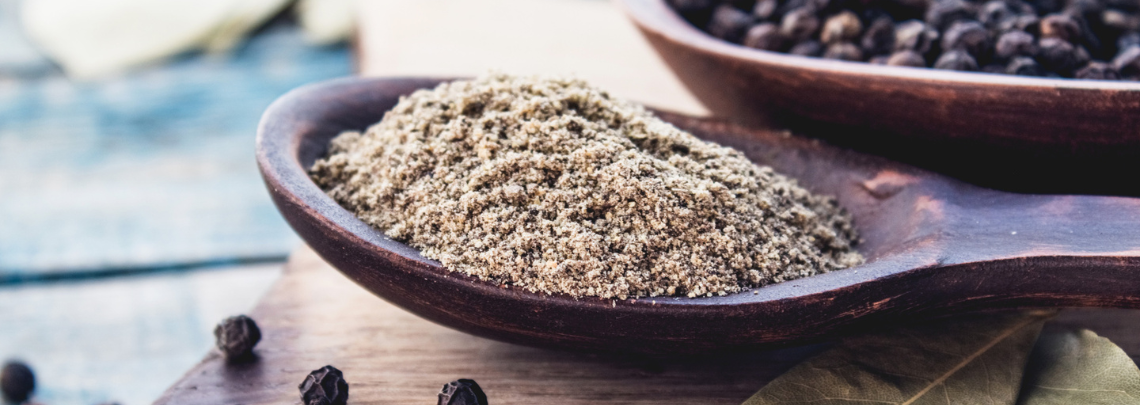What is BCP (Beta-Caryophyllene)?
You’ve heard about CBD oil. Perhaps you’ve even dived in and experienced its calming properties. But BCP oil is the latest wellness kid on the block, and BCP is being hailed as a self-care superpower
BCP EXPLAINED
To understand BCP (otherwise known as beta-caryophyllene) it’s essential to get your head around what it isn’t. Firstly, BCP is not CBD. It also isn’t strictly a cannabinoid, the way CBD and THC are. Some sources do call BCP a cannabinoid, but in Australia, the TGA has said it’s not. This means, unlike other cannabinoids, BCP is easily obtainable and is 100% legal.
BCP, though strictly not a cannabinoid, does interact with the body’s endo-cannabinoid system.
However, what’s exciting about BCP is that it binds with the body’s CB2 receptors (associated with mood, pain regulation and the immune system). Cannabinoids also bind with CB2 receptors, but they also bind with other receptors in the body, whereas BCP only binds with CB2.
So, it’s freely available, and it’s not strictly a cannabinoid, but it does act a bit like one – what else does this compound do?
While studies are ongoing, research has found beta-caryophyllene (BCP) to contain powerful anti-inflammatory, antimicrobial, antibacterial, and antioxidant properties.
BCP has been linked to treatments for depression and anxiety, arthritis, heart disease, seizures and more, while a recent study has gone as far as to say that BCP may be a more effective pain reliever than CBD oil. So, while it’s clear that BCP may contain just as many (if not more) health benefits as cannabis oil, what exactly is it?
Limonene from lemons and beta-caryophyllene from black pepper, cinnamon, etc
ON THE NOSE
To understand the science behind beta-caryophyllene (otherwise known as BCP), think back to some of your favourite natural scents. Whether it’s the freshness of a pine tree, the bittersweet tang of an orange, or the soothing scent of lavender, these fragrances are all due to an organic compound otherwise known as a ‘terpene’.
Terpenes give various plants their distinctive scents and are thought to have a profound impact on our emotional and physical wellbeing. They’ve been around a while too; terpenes have been traced back as far as the 11th century with the introduction of camphor as pain relief.
There are hundreds of known terpenes, and they have endless uses and benefits. They’re commonly used in aromatherapy treatments, cosmetics, cleaning products, perfumes and even food additives. So what makes BCP such a remarkable terpene, and why are we focusing on it? The answer lies in where it can be found.
Beta-caryophyllene is found in black pepper, rosemary, cinnamon, etc.
Beta-caryophyllene, or BCP, is abundant in aromatic plants like basil, oregano, black pepper, rosemary, black caraway, and cinnamon. It’s also abundant in cannabis. In fact, the cannabis plant contains an especially high concentration of BCP which gives it that unmistakable scent. BCP is secreted from the same part of the cannabis plant as THC and CBD, but it’s structurally quite different and thus affects the body differently too.
So how exactly does it work? Like certain cannabinoids, BCP interacts with the human endocannabinoid system- a network of neurotransmitters associated with pain relief, sleep and digestion. As a result, BCP is believed to assist in many of the human body’s functions, from inflammation, emotional regulation to pain perception, seizures and more.
As a growing mountain of data shows, BCP’s ability to bind directly to the body’s CB2 receptors (which help to regulate mood, memory, pain, appetite and more) may be the reason it is so effective. The activation of CB2 is said to reduce inflammation, thereby reducing pain from injuries and chronic conditions. Unlike CBD, which works less directly on the body’s endocannabinoid system, using BCP is thought to be a targeted way to tackle inflammation and pain management.
WHAT IS BCP OIL AND THE BENEFITS?
BCP is commonly ingested in ‘BCP oil’ preparations.
Commonly, BCP oil preparations use a mixture of hemp seed oil as a base with beta-caryophyllene added. Mixtures like this are thought to treat a variety of ailments including skin blemishes, digestive issues, anxiety and more.
Some of the reported benefits of BCP are as an immunity booster, having a positive effect on anxiety and depression, as a pain reliever, and as an anti-inflammatory.
IS BCP OIL BETTER THAN CBD OIL?
With wellness oils and treatments flooding the market, it can be hard to pinpoint which one is best for you. Picking the right oil comes down to your preference and your individual needs. For example if you’re picking a product specifically for pain relief, then it may be worth examining the research suggesting that BCP may be more effective than CBD oil.
As studies on various terpenes and cannabinoids continue to emerge, it’s a good idea to take some time to research your options and pick the right blend to suit your needs.
